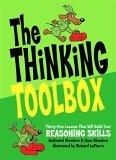On the other hand, with respect to religion, the very idea of a moral code seems to me religious. What I mean is that moral codes generally assert a set of values based on an ultimate principle. By ultimate principle I mean that is accepted without any other argument (read CS Lewis Abolition of Man
However, in defense of the Old Testament I must say that if its account is true, then nothing is excluded with respect to time. The Old Testament begins with the creation of the universe, so their would be no “prior to” the timeline of its account. What is not debatable is that moral people existed before Moses wrote down the initial books. In fact, there are many moral Old Testament figures that make moral choices and are held accountable for infractions before Moses and the big ten (Adam comes to mind).
It is obvious that not everyone in the past was murdered (hello!). But, need we have anything like a moral code or morality not to kill other people? Also when do we start counting people as everybody? Why not start with ants? Where should we draw lines? If you don’t think we should, why not draw the line around various obnoxious people and wipe them out? It seems like the wrongness of that just emerges. If it does not, then what grounds do we have to call it immoral or moral? I think there are a few possible explanations of moral people before Moses, and some of them seem probable or sufficient. When you speak of morals how do you avoid the problem of the criterion?
Along another train of thought, what is “statistical truth?” When using any sort of induction or abduction (argument from the best explanation) (including your comments) one does not (and cannot) guarantee the truth of what he or she is saying; thus, some sort of probability (with chances less than one and greater than zero) of the event must be mentioned. I am trying to make sense of “statistical” because it seems rational for me to think in terms of probabilities when speaking of the future based on the past (contra the impression from you comment). Further, my my post was mostly a set of questions designed to “prime the pump” for the link I provided. What exactly are you referring to, and do you mean in my post or Vitagliano's?
Moreover what do you mean by “truth?” I am assuming a correspondence theory (what are you assuming?). I don’t think that truth is a degreed property. Something is either truth, false or neither. I could be wrong about that, but the counter examples I know of can defeated. In this case either the statistics are true or false. Actaully, it is the inference from statistics at issue here. What counter-argument do you have against my thoughts?
Although your comments seem to be without charity, I appreciate how your comments have challenged me to reflect on my views. If I have time I will generate a more robust post on this topic in the fall. I the mean time, do good Paul.
